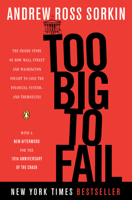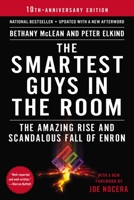The Ultimate Improvement Cycle: Maximizing Profits through the Integration of Lean, Six Sigma, and the Theory of Constraints
Select Format
Select Condition 
You Might Also Enjoy
Book Overview
Recognizing the need to implement quality and eliminate waste, companies embrace Lean, Six Sigma, or a combination of the two, typically taking a broad approach that seeks to remediate every process, critical or not. When this happens, efforts become distracted, improvements indefinitely delayed, and results mediocre at best.
The Ultimate Improvement Cycle (UIC) integrates Lean, Six Sigma, and the Theory of Constraints into a combined strategy that will help you immediately focus your efforts on those areas that will make the greatest difference. The book presents basic laws of factory physics that show why the UIC delivers significant bottom-line improvement while other initiatives so often fail. It explains to you why focusing your efforts on apparent problems rather than systemic concerns is wasted effort.
Focus on key areas and take improvement to the next level
The Ultimate Improvement Cycle: Maximizing Profits through the Integration of Lean, Six Sigma, and the Theory of Constraints show you how to draw the best from Lean and Six Sigma by employing principles drawn from the Theory of Constraints. This approach will ensure that your effort is focused in the right place, at the right time, using the right tools, and the right amount of resources. This multi-pronged approach addresses cost accounting, variation, waste, and performance measurements. But most importantly, it focuses your organization on the right areas to optimize.
Applying years of hands-on work in many environments, Bob Sproull has developed a unique proven method that capitalizes on a time-release formula for evoking the key tools that improvement requires. He shows you how to take advantage of the cyclical nature of improvement to implement change that is perpetually effective, and his approach does not require more resources than you have on hand. Although originally developed in manufacturing, the UIC works equally well in any environment whether it be manufacturing or service-oriented, including Maintenance, Repair and Overhaul (MRO) and Critical Chain Project Management (CCPM).



















































